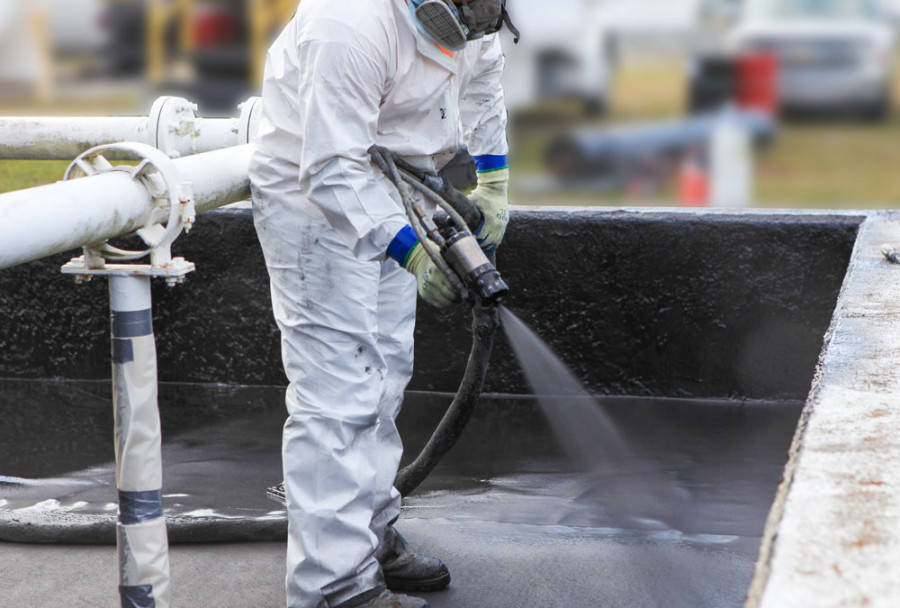
In the world of coatings, linings, and joint sealants, one technology stands out: polyurea. This remarkable material is a 100% solid coating formed by the reaction between an isocyanate and an amine resin. But what makes polyurea so special?
Unlike other coatings, polyurea coatings are easy to apply and have a rapid-curing reaction that is not affected by moisture or temperature. This means that polyurea can be applied smoothly and efficiently regardless of the weather conditions. It can adhere to virtually any roof substrate, making it a top choice for bolstering the roofline.
Polyurea protective coatings are commonly used for various applications such as structural enhancement, corrosion protection, waterproofing, abrasion resistance, and more. They offer a level of durability and resistance to chemicals, environmental factors, and atmospheric conditions that traditional materials like paint, epoxy, fiberglass, and vinyl esters simply can't match.
While polyurea coating technology has been around for almost three decades, it is still considered newer and more advanced than traditional systems. It offers many advantages to owners, specifiers, and contractors. One of its major benefits is its ability to cure and set rapidly, allowing for faster return-to-service compared to traditional coatings. This means less downtime and financial loss for facility owners.
Polyureas are typically spray-applied, allowing for fast and accurate application. Depending on the requirements, they can be applied at various thicknesses in one or multiple passes. Additional characteristics like slip-resistant additives, surface textures, UV-stable colors, and even NSF potable water-approved systems can be incorporated with polyurea.
Polyureas can be formulated to achieve a wide range of physical properties. From high extension to superior tensile strength, hardness or softness, polyureas can be tailored to meet specific needs. The key lies in the formulation and correct application of the material.
Polyurea coatings and linings also excel in joint fill and caulk applications. Their fast-set nature, high elongation, and durability make them ideal for these types of uses. Polyurea can even be molded and shaped by spraying it into molds. It is also commonly used as a hard coat protective shell over expanded polystyrene (EPS) for architectural molded fascia applications.
Whether it's protecting structures, enhancing durability, or providing waterproofing solutions, polyurea delivers exceptional results. At Profoam, we not only offer high-quality polyurea coatings but also provide valuable guidance to contractors based on their clients' specific requirements.
With us, contractors like you can rely on a trusted partner who not only supplies top-notch products but also offers invaluable support and advice every step of the way.